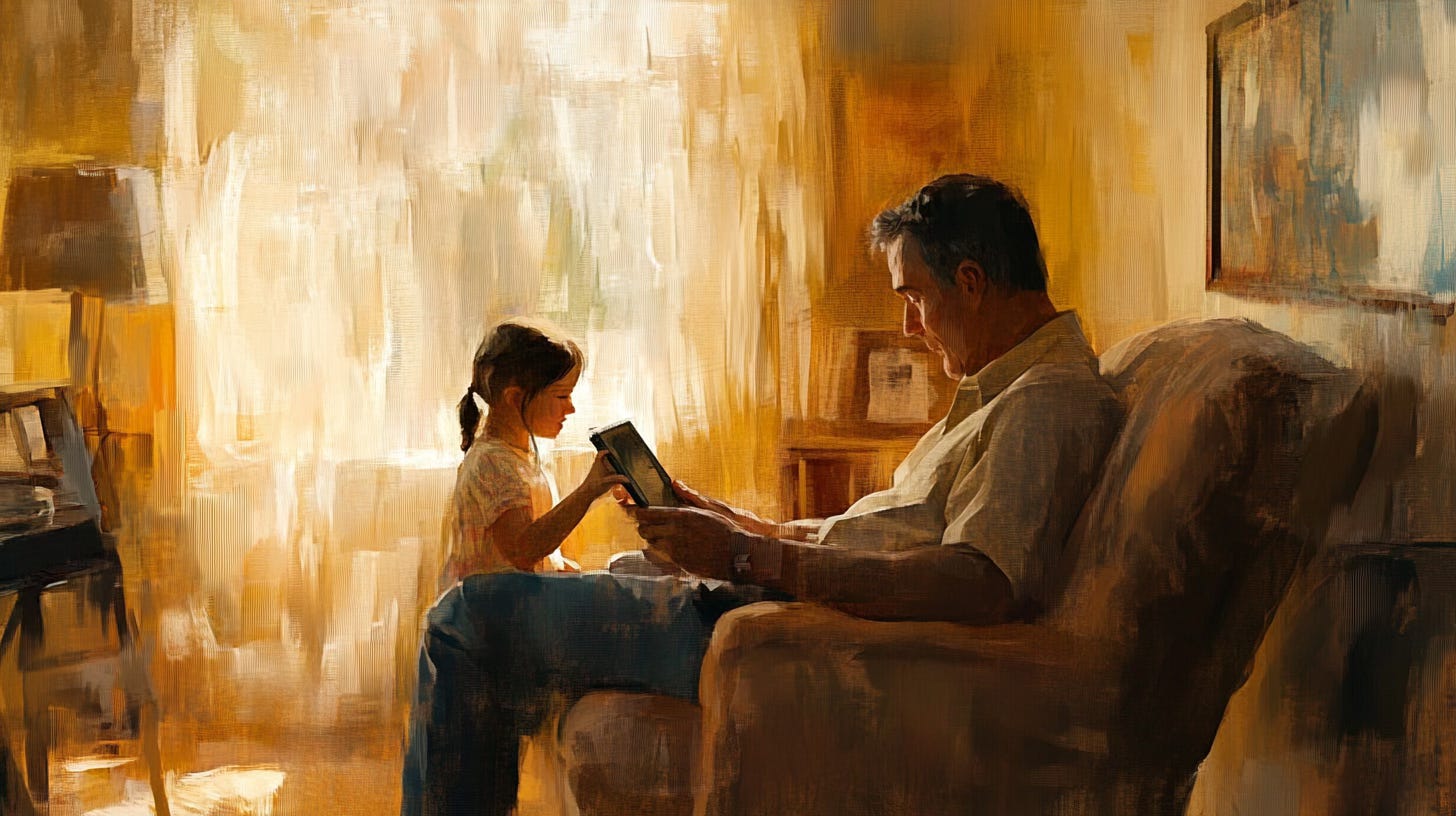Dad Moments I’ll Never Forget
By Ruth E. Thaler-Carter
My dad was affectionate, understanding, honest, and accessible. He was a psychiatrist and psychoanalyst, but he made it a point to leave the office behind. As he once told my great-aunt, “From 9 to 5, I’m a psychiatrist. From 5 p.m. to 9 a.m., I’m a dad.” I never felt like we—I have two younger brothers—were being analyzed or judged.
It’s hard to isolate a single moment I’ll never forget about my beloved dad, so I won’t try. But here are a few that still live vividly in my memory.
When I was in sixth grade, I was invited to join an AV club, where we previewed movies to decide which ones should be shown in class. I wasn’t very popular, so this felt like a big deal. One day, the teacher said there was a meeting after school. When I arrived, I was the only student there. He walked over to the classroom door, looked through the window, fiddled with the handle, then came over and put his hand on my knee. I wasn’t very knowledgeable about these things, but I knew something was wrong—and I got up and out the door before it went any farther.
At home, Dad noticed I was uncharacteristically quiet. He asked what was wrong, and I told him. I don’t remember exactly what he said—just that I had done the right thing and he was proud of me. The next morning, he was at the school when it opened. He told the principal that either the teacher would be in treatment that day or he would go to both the superintendent and the police.
The teacher ended up in administration in a different district. I never heard of any further incidents, so I’ve always hoped that was enough to protect other girls—or boys. Who knows.
Years later, when my first niece was born, I called home to ask how my brother was doing. Dad said, “He’s feeling like I did when you were born.”
“How do you mean?” I asked.
“It was the greatest moment of my life.”
“I thought Mom was the greatest thing in your life.”
“Your mother is the best thing in my life. But seeing you for the first time was the greatest moment of my life.”
There’s something quietly breathtaking about being the greatest moment in someone’s life.
After college, once I’d launched my publishing career, I came home for the holidays and agreed to a dinner date with a high school classmate. His idea of a night out was an all-you-can-eat buffet at a Chinese restaurant where he was apparently a regular—and took leftovers. Then he brought me to the house he shared with his mother and younger brother. His mom had the biggest, nicest bedroom; his looked like a college dorm room or a monastic cell.
It was fine, but not a connection I wanted to pursue. I was working on a polite way to decline further contact when he called to say he wasn’t interested—because I wasn’t sophisticated enough.
This from a guy who had never left Rochester except for college, still lived at home, and whose worldly experience paled in comparison to mine. I had lived alone in St. Louis and D.C., traveled to Europe (with family and on my own) and to Mexico for work, written for publications around and beyond the U.S., and spoke three languages other than English.
Still, I was flabbergasted—and weirdly hurt. I called Dad. He listened, then said, “Well, darling, he obviously realized you were beyond his reach and decided to reject you before you could reject him. Take it as a compliment!”
On one visit home, we went to a dinner party with some of my parents’ friends. One of them asked what I was doing in D.C. Before I could answer, Dad jumped in: “Ruth is the communications manager at a trade association, and we couldn’t be more proud of her.”
And then there was the surgery.
I was scheduled for major abdominal surgery, and my doctor had said I’d need general anesthesia. But on the day of the operation, as I sat hooked up to an IV and waiting to go in, the anesthesiologist started talking about giving me a local anesthetic instead. I said no, but he insisted. My surgeon wasn’t available, and I refused to proceed. “Bring me a phone,” I said, “so I can call my father.”
Luckily, Dad was in his office. I told him what was going on, and he said firmly, “It’s your body, your operation, your decision. If your doctor said you should have general anesthesia, that’s what you get.” I repeated that to the anesthesiologist and insisted he check with the surgeon before going any further. I don’t know if he actually did—but I got the general anesthesia.
Later, I told my surgeon what had happened. She was horrified and said she would never have performed the surgery without general anesthesia. But that was after the fact. In the moment, it was my dad who gave me the clarity and strength to insist on what I needed.
That was my dad. He always had my back
Ruth E. Thaler-Carter (www.writerruth.com) is an award-winning freelance writer, editor, proofreader and speaker. Thanks to high school friend and Great Dames guru Kathy Palokoff, she proofread the Great Dames book Great Dames: Women Sharing Their Power. She recently received six awards for her writing work from Missouri Professional Communicators (MPC), the St. Louis-area affiliate of the National Federation of Press Women (NFPW), which makes her eligible for national recognition at the 2025 NFPW conference.
.





I’ll never forget them either, Ruth. Thanks for sharing them.